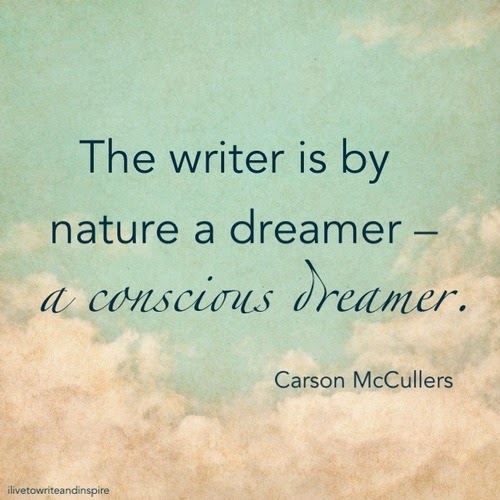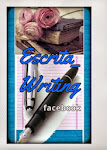As the saying goes, no one
is born knowing everything, but we do know at least one thing when we are born.
Our gift. Whichever it will be the point in our lives that we will be
able to discover and develop it.
I believe writing is a gift, a vocation, that
we have since we are little, such as painting or singing. What happens with
gifts is that we are able to develop them, improve them with time. But if one
does not have a specific gift when he/she is born _ and everybody has one or
more of them _ it can’t be created, fabricated. When we try to do that, the
result sounds false, artificial, or, at most, sufferable.
There is a difference between
having a gift and the capacity to learn countless things. The human being has a
huge capacity of learning, even things he doesn’t think he’s capable of. And,
in certain areas, when one “learns” a specific thing and succeeds it is because
he/she already had the gift for that without realizing it yet.
Writing is a gift that usually manifests
itself still in childhood, through the easiness in writing essays for school,
diaries, in creating stories and texts in general. Writing is a gift that walks
hand in hand with imagination. Imagination is the main raw material of the
writer. We can ask a writer to write about practically everything, even the
most trivial things, and the words will flow naturally for him/her when
composing his/her text.
So we can’t learn to be a writer? In this
case, what are the “writers’ apprentices”?
One can’t learn to be a writer because writing is an
ability connected to the gift. We can’t teach a person to have imagination and
inspiration he doesn’t have to express his thoughts and feelings through words.
What we can learn is writing techniques, rules of the language, but, for them
to bear fruit, they must be supported by an already existing gift. Which means
that a person who has the writing gift can improve it with those techniques.
This way, the writer apprentice is the one who is already born with the writing
gift and aims to improve it. He/she learns with masters, not to imitate them,
but to improve his/her own techniques and feel encouraged by them.
.jpg)
With the due humbleness, I think I have this writing
gift. I’ve always had the ability to create texts. Since childhood, I’ve always
loved books, and I wanted to be a journalist. Life took me through other paths,
but I ended up studying Letters and becoming a translator, always dealing with
literature, languages, books. These have always been recurrent themes in my
life. Some say a translator, though always faithful to the original text, is a
coauthor of a book. And, in fact, it is what happens. The translator has to transcribe
the original text to his own language, faithfully, but in a way that is clear
and natural to the reader. However, the inspiration and imagination to create
and write belongs exclusively to the author.
Besides the techniques and rules of his language
that a writer learns to improve his gift, though the most important thing is to
write with feelings, he also does a lot of research for his books, and travels
when it’s possible. The more experience in life a writer has, the more
emotional baggage he possesses, more material he will have to add to his gift.
Though I think I have a gift to write, I’ve never
written a fiction book, which is an old dream, but now I have an idea for a
romantic story, and I’m starting to work on it. Anyway, I believe that, when
writing, certain things flow more naturally and easily to us than others, or we
prefer determined genres or styles to write. Up to now, I’ve only written
articles, chronicles, phrases, and general texts, and I published my first book
with my articles and chronicles in Portuguese. It’s a self-help book called
“Meu Próprio Livro”, and I’m translating it to English to publish it in this
language as well.

.jpg)
.jpg)
.jpg)
.jpg)

.jpg)
.png)
.jpg)
.jpg)

.JPG)
.JPG)

.png)
.gif)
.jpeg)
.jpg)
.png)
.jpg)
.jpg)










.png)
.jpg)






















